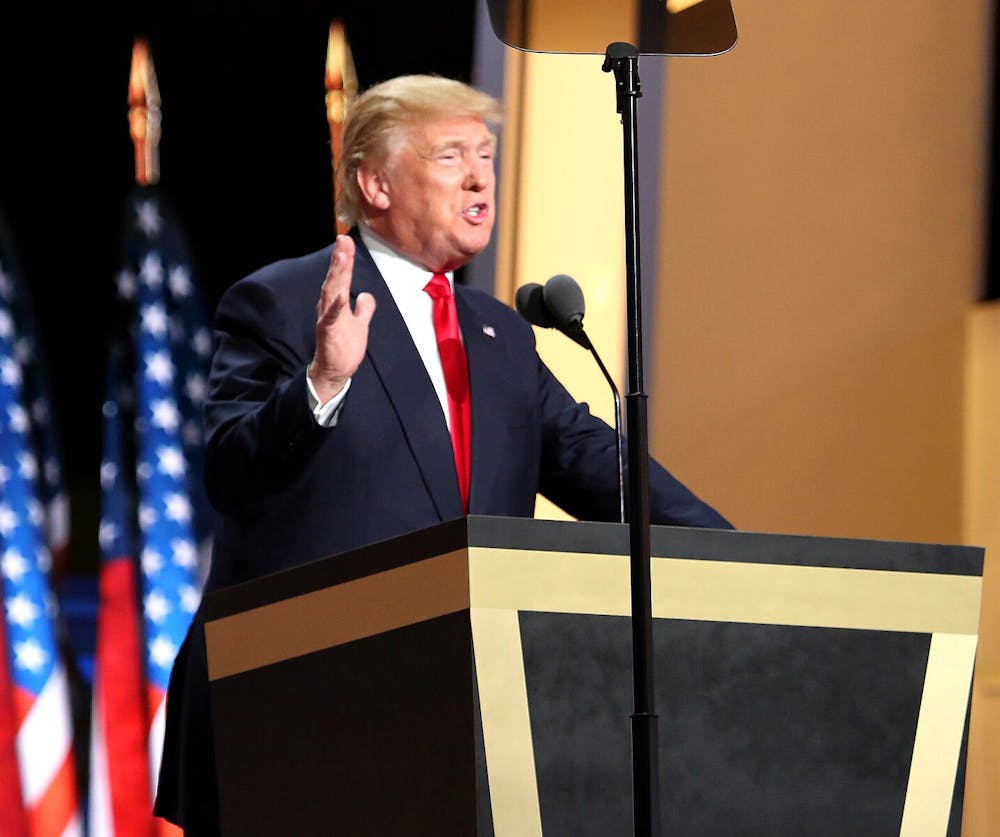By Gauri Patel
Staff Writer
A federal appeals court unanimously ruled on Feb. 6 that former president Donald Trump can face trials for the alleged crimes he committed to overturn the results of the 2020 presidential election, sharply rejecting his claims that he is immune from prosecution, according to Reuters
The ruling is the latest major legal loss for Trump, who is expected to appeal to the U.S. Supreme Court to overturn the decision or request the appeals court’s judicial lineup to rehear the case. The appeals panel, which included two appointees by President Joe Biden and one Republican-appointed judge, gave Trump a week to file an emergency stay request with the Supreme Court, which would put the case on hold to allow his attorneys to craft a more substantive appeal.
The court concluded that any immunity that shielded him from charges during his presidency no longer protects him thereafter, writing, “For the purpose of this criminal case, former President Trump has become citizen Trump, with all of the defenses of any other criminal defendant. But any executive immunity that may have protected him while he served as President no longer protects him against this prosecution.”
Trump campaign spokesman Steven Cheung decried the decision, claiming that without complete presidential immunity, all future presidents would be subject to prosecution upon leaving office and would not be able to do their jobs properly, according to Reuters. He added that the ruling “threatens the bedrock of our Republic."
Trump’s lawyers had made three arguments to the appeals panel in claiming presidential immunity from the charges. They argued the federal courts lack the authority to review a president’s official acts because of the Constitution’s separation of powers doctrine. They also claimed that policy considerations rooted in that doctrine required immunity to avoid affecting executive branch functions.
Lastly, they argued that the Constitution’s Impeachment Judgment Clause does not permit a president from being criminally prosecuted for official actions unless first impeached by the House of Representatives and removed from office by the Senate, according to The Associated Press. Trump was impeached twice by the House but was acquitted each time by Senate Republicans.
The panel rejected all three of those arguments “both as a categorical defense to federal criminal prosecutions of former Presidents and as applied to this case in particular.” They added in their written ruling, “At bottom, former President Trump’s stance would collapse our system of separated powers by placing the President beyond the reach of all three Branches.”
Moreover, Trump is also involved in a case in which the Colorado Supreme Court ruled to remove Trump’s name from Colorado's Republican primary ballot after he allegedly engaged in the Jan. 6 Capitol insurrection in an attempt to cling to power after he lost the 2020 presidential election to Biden. The case was heard by the U.S. Supreme Court after Trump’s appeal.
The case centers on Section 3 of the 14th Amendment, which provides that no one can hold any civil or military office in the United States if that person had previously sworn to support the Constitution but then “engaged in insurrection or rebellion” against the federal government.
The state court put its ruling on hold to give the Supreme Court time to weigh in, which the justices agreed to do on Jan. 5. The Supreme Court seemed likely to allow Trump to remain on the Colorado ballot, expressing deep skepticism about permitting a single state to disqualify the leading Republican candidate from holding office, according to The Washington Post.
Justices from across the ideological spectrum raised concerns about states reaching different conclusions on whether a candidate could run, and several justices indicated that only laws passed by Congress could enforce Section 3’s ban on government service by individuals who have engaged in insurrection.
After more than two hours of oral arguments, the justices appeared uninclined to leave the Colorado Supreme Court’s decision in place. The Colorado Supreme Court’s ruling is currently on hold, so Trump will remain on the ballot there unless the justices decide otherwise.
As these cases progress through the judicial system, they not only shape Trump's legal fate but also raise important questions about the intersection of presidential authority, accountability and the rule of law in the United States.







